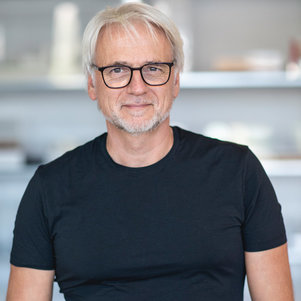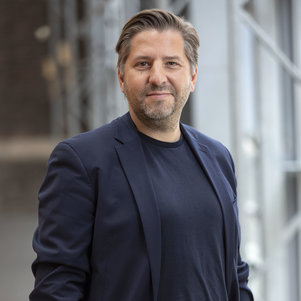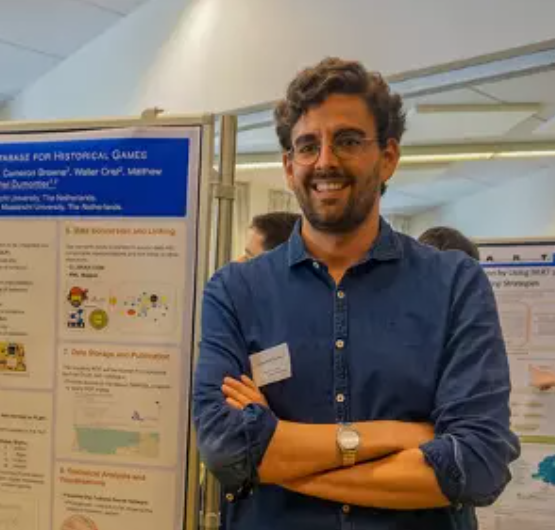Spring Symposium – AI Education
04 juni 2024 09:30 t/m 17:30 | Zet in mijn agenda
Please reserve the 4th of June in your calendar for the Spring Symposium on AI Education. Registration is now open!
Hosted by the TU Delft | AI Initiative at Mondai | House of AI, this event will shine a spotlight on AI education. Join us for a day filled with insights from TU Delft's leading experts, as we delve into the fostering of AI education such innovative best-practices for teaching AI, interdisciplinary AI education, and AI skills for the future engineer.
In the morning session, gain insights into ‘AI and the changing world for graduates’ with real-world examples on the expectations from future engineers. The afternoon session will focus on practical AI education with workshops, discussions, and actionable takeaways. The afternoon session will end in a casual manner with drinks, refreshments and an opportunity for networking. The event will provide a valuable platform for knowledge exchange. Kindly reserve the day in your calendar to attend an engaging mix of discussions, workshops, and educational showcases with practical insights.
Keep an eye on this page for more updates on speakers, workshops and more!
Morning programme: ‘AI and the changing world for graduates’
09:30 - 12:30
An inspiring keynote programme to highlight the growing presence of AI in various disciplines.
Notable speakers will discuss AI in their respective fields:
- Kees Kaan and Georg Vrachliotis (Faculty Architecture and Built Environment, TU Delft)
- Qian Tao (Faculty of Applied Sciences, TU Delft)
- Cees Zweistra (Erasmus University Rotterdam)
Afternoon programme: practical AI education with workshops, discussions and actionable takeaways
12:30 - 17:00
An enriching afternoon programme designed to equip educators with insights to foster AI education. Workshops and sessions include:
- Lessons from implementing ML Education & the road ahead
- Pedagogy using a design lens
- Education in the age of AI - the 'old' and the 'new'
- Exploration of AI tools for research software
Keynote speakers
Open and Connected Futures: Reimagining Design Education in the Age of AI
-
Georg Vrachliotis and Kees Kaan, leading experts in the built environment, explore the intersection of architecture and AI. Georg Vrachliotis explores the shifting landscape of knowledge discovery in the AI era, unveiling new horizons in architectural innovation. Meanwhile, Kees Kaan offers a pragmatic and business-oriented outlook on AI's impact within architecture, providing invaluable real-world insights into this transformative technology.
Kees Kaan is a distinguished Professor of Architectural Design - Complex Projects and currently chairs the Department of Architecture at the Faculty of Architecture and the Built Environment. With a visionary approach, his research and studio work focus on 'The PROJECT' within the contemporary city and region, emphasizing critical thinking and narrative construction for practice. Beyond academia, Kees Kaan is renowned as the founder of KAAN Architecten, recognized for transformative projects like the Supreme Court of the Netherlands, the Royal Museum of Fine Arts in Antwerp, and the Netherlands Forensic Institute.
Georg Vrachliotis, a distinguished full professor in the Theory of Architecture and Digital Culture at TU Delft, brings a wealth of experience and insight to the intersection of AI and architecture. Vrachliotis heads the Design, Data and Society Group (DDS) at TU Delft, as well as the flagship project ‘The New Open’. From 2016, he was dean of the Karlsruher Institut für Technologie (KIT) Faculty of Architecture and Chair for Architecture Theory (2014-2020).


AI for Physicists and Physicists for AI
-
Qian Tao will take us on a journey from working at the academic hospital where AI is making a huge impact on Radiology, to the corridors of TU Delft Imaging Physics where she does pioneering work on developing trustworthy AI with physics principles. Qian advocates for integrating AI into the new physics education, aiming to prepare graduates for the evolving scientific landscape and job market. AI is beyond a mysterious black box from the perspective of engineering, Qian provides her insights on the symbiotic relationship between AI and physics.
Dr. Qian Tao, with extensive expertise in biomedical engineering and pioneering AI work in radiology, brings a wealth of experience to her role. Having spent over a decade at LUMC conducting multidisciplinary research on cardiac MRI and AI-based medical image analysis, she joined TU Delft to expand her exploration of data- and knowledge-driven AI. Since 2021, Dr. Tao has led the CHEME AI Lab at TU Delft's Department of Imaging Physics, focusing on developing trustworthy AI methodologies for critical healthcare applications, particularly in medical imaging, to enhance AI's reliability and impact on scientific and clinical advancements.

Educating Tomorrow’s Lawyers
-
Cees Zweistra explores the future of legal education shaped by developments in technology. As the legal landscape changes, education too must follow suit with innovative programs that integrate AI into law studies. Learn about how AI developments create many opportunities, while also fuelling discussions around ethical considerations. Cees Zweistra offers insight into why teaching students about AI’s technical aspects is essential for lawyers to stay relevant in today's evolving legal landscape.
Cees Zweistra is assistant professor of ethics, law and technology at Erasmus University Rotterdam. He studied both law and philosophy at Utrecht University and obtained a PhD in the ethics and philosophy of technology from Delft University of Technology. His research is focused on understanding how technologies are co-shaping the future of the law and legal profession.

Workshops
Machine Learning Education in the different faculties: Best Practices, Tips and Sharing Materials
-
How do we teach machine learning? Do you want to learn and share best practices, tips and educational resources? Then this session is for you! In this workshop we share some conclusions from Machine Learning Teachers Community meetups and we invite you to also share your best practices and tips. We are also developing a platform (OER4AI) to share machine learning education materials between TU Delft teachers. We are looking for feedback to improve this platform and make it useful for you! In conclusion: an interactive session to foster more collaborations between teachers.
Visualisation and AI: More than just communicating results
-
How to use data visualisation? Visualization is commonly used for communication of research results, from plots in scientific papers to illustrations in science communication. In this lecture, we will discuss the basics for creating good, legible visualizations of such results, but also go beyond just communication. We will discuss the benefits of using visualization in combination with machine learning (ML) to gain deeper insight into the data and to better understand ML methods themselves.
AI Pedagogy through a Design Lens
-
How can a design view shape the pedagogical approach to AI? Explore the intersection of design and AI education in this workshop. We will discuss practical insights from the five-year run of the AI & Society IDE master elective, including the unique contributions of studio-based teaching and thinking-through-making learning activities.

Exploration of AI tools for research software
-
Generative Artificial Intelligence (AI) and Large Language Models (LLMs) are reshaping research tasks. This workshop will explore the usage of generative AI in research, including code assistance, integration into research software development, and the exchange of experiences and best practices. The agenda covers essential topics: introducing LLMs, examining the impact of code assistants on research software development, and exploring responsible use and legal implications of generative AI tools like GitHub Copilot, concluding with a practical session using GitHub Copilot for software documentation.
Impact with your AI Education
-
Are you passionate about AI education? Have you developed or are you developing AI courses for campus education? Want to expand your impact? Consider developing your course into a Massive Online Open Course (MOOC)! By developing online course materials for the edX platform, support professionals to keep on track. Moreover these support learning flexibility for your campus students. This can ease your workload while extending the reach of your AI education. Join our workshop to learn from educators who have successfully adapted campus courses into MOOCs. Let's brainstorm together on future course development opportunities!
(Re)defining education in the age of AI
-
Technological advancements, such as AI, present new challenges to education, both in terms of how these technologies may be integrated into educational processes, and in terms of the role these need to take up in curricula. While these are important considerations to make, they often eclipse another equally important question: to what end do we educate? This session revolves around the fundamental question: what is the purpose of education, and (how) do the developments around AI change the way we approach this question? We will explore this question through small groups and plenary discussions in this session.
